| |
|
|
| |
The waiting game.
Fri 20th June, 2014
|
|
|
|
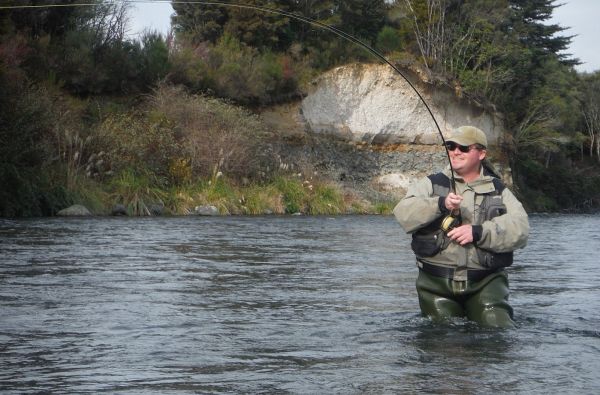 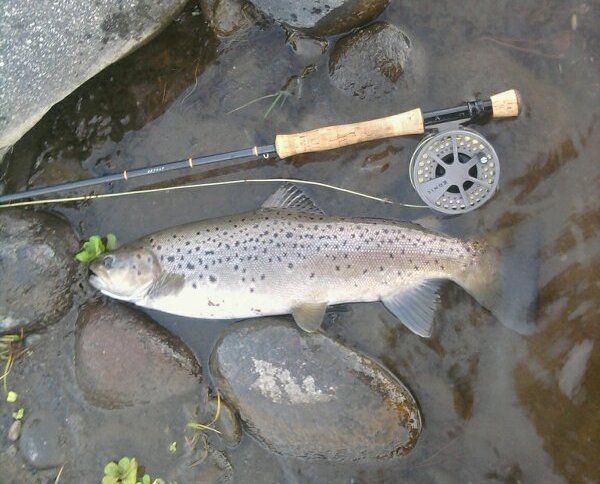
What do you do on your day off if you work in a busy Turangi tackle shop all week?... no prizes for guessing the answer.
Steve from Creel Tackle playing a brown in one of the town pools. Unfortunately this one threw the hook but his smaller mate pictured on the right wasn't as lucky a day or two earlier.
If you're wondering what's different about Steve's face ... its called a smile ... that's my discount gone!
There have been quite a few browns showing up in the four to five pound bracket, which is just as well because things have been a bit slow, particularly the last couple of days.
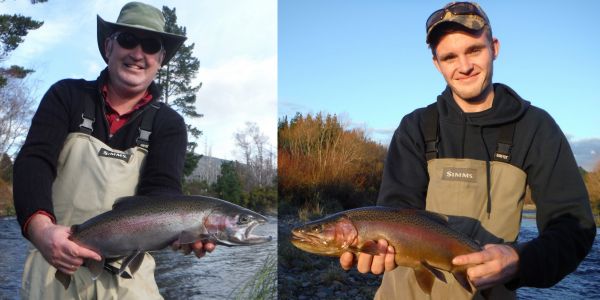 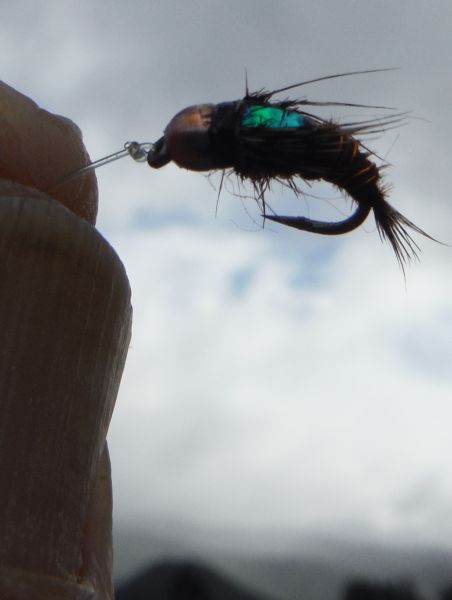
The threat of rain saw some fish moving up at the beginning of the week. But it was nothing to get excited about and despite some early action around town, by Wednesday I think anglers were generally finding things hard again.
The number of anglers ON the river is usually a good indication of fish numbers IN the river and things are still pretty quiet angler-wise.
Even so one fisho I spoke too on the Upper river commented that he'd seen a lot more anglers than he had fish!
Most of the trout I've caught this week have been dark jacks, in fact I don't think I've caught any hens at all.
Still plenty of hatching insects keeping the birds busy and this influenced fly choice with nymphs like the Quasimodo and Cadillac tempting any fish that happened to be in front of you.
Things will eventually improve and before we know it the runs will be in full swing. But until they pick up I'm afraid we'll just have to be patient and continue playing the waiting game.
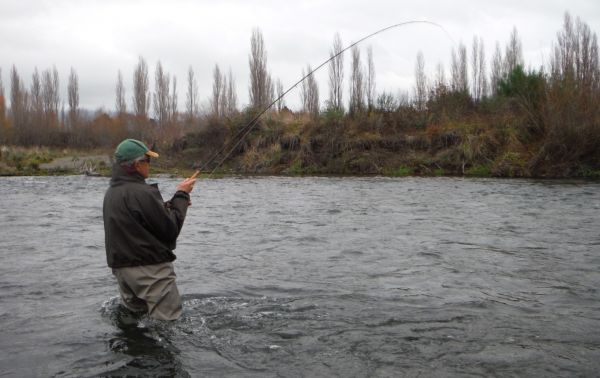
Nowadays more and more anglers practice catch and release and I doubt that I keep more than one percent of the fish I land on the Tongariro. Its not that I have any particular moral stand on the subject ... its just that I don't like the taste of trout. But when you return fish there are a number of steps you can take to give them the best possible chance of surviving the encounter.
Using barb-less hooks is always a good start. Personally I go along with the theory that it's easier to set the hook without the barb because you get better penetration and a deeper hook set when you strike. And with the barb gone those inevitable wayward flies that impale themselves into your clothing, landing net or ear are a breeze to remove. De-barbing your hooks will cause considerably less damage to the fish and I'm sure I'm not the only one to have landed trout with mouth damage and deformities that they probably sustained when they were caught and unhooked carelessly as juveniles.
Don't play the fish to exhaustion, especially in summer when the dissolved oxygen content in the river dwindles. Its much better for the fish if you play it hard and get it to the bank as quickly as possible. This will help stop the build up of lactic acid in the trouts cell tissue which can cause irreversible damage and death.
If at all possible, keep the fish in the water while you're removing the fly ... barb-less hooks will make this much easier.
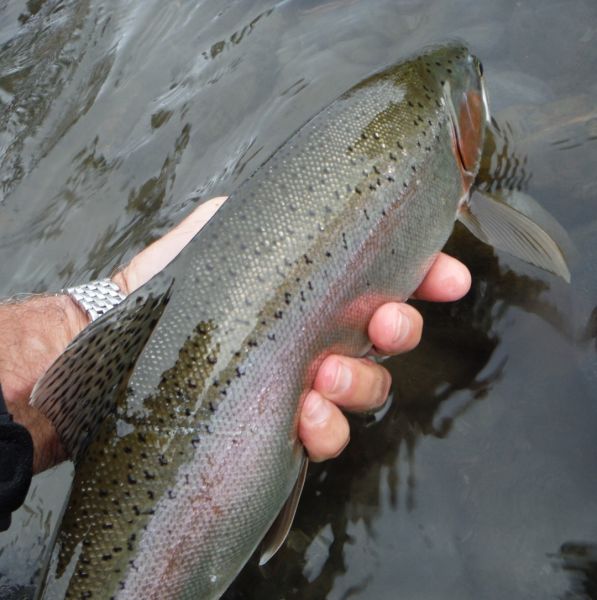 If you intend handling your fish, for instance when photographing your catch, wet your hands first and anything else that its likely to come in contact with. This will help prevent the loss of any of the mucus layer that protects the fish from bacterial infection. If you intend handling your fish, for instance when photographing your catch, wet your hands first and anything else that its likely to come in contact with. This will help prevent the loss of any of the mucus layer that protects the fish from bacterial infection.
Make sure you have everything set up and ready on the camera before you lift the fish from the water ... the less time its out of the water ... the better.
Don't release it in the shallows where there's no flow or anywhere you've disturbed the bottom making the water murky. Hold it upright below the surface facing upstream where there is some current and allow the water to flow over its gills.
If necessary move the fish backwards and forwards to help kick-start the gas exchange that will replenish oxygen lost during the fight. As the fish recovers it will remain upright without your help and eventually swim off to fight another day.
Just in case I've forgotten something, here's a clip on Tips and Techniques for C&R when trout fishing, look at the size of those trout ... we really are lucky to have such fantastic fly fishing in New Zealand.
Tight lines guys
Mike |
|
|
| Back to Top |
|
|
|
|
|
|
|